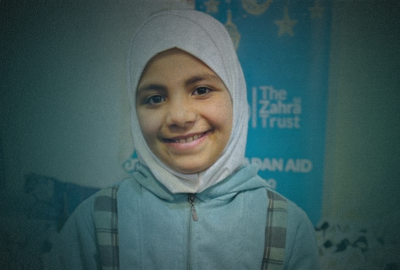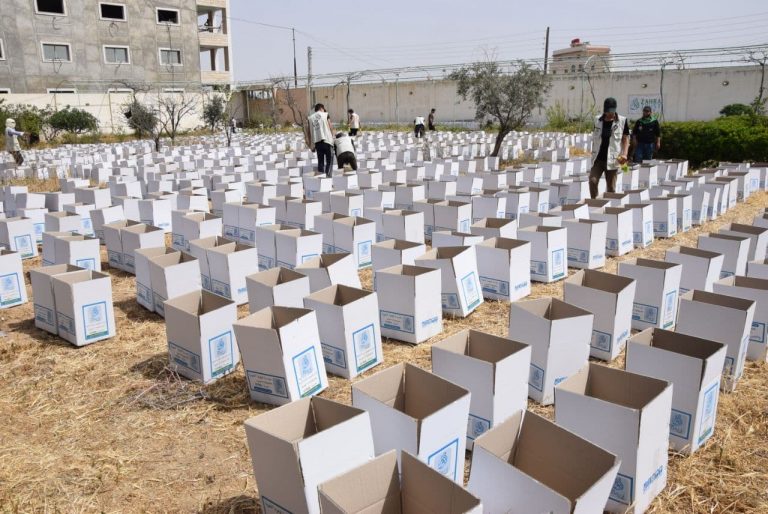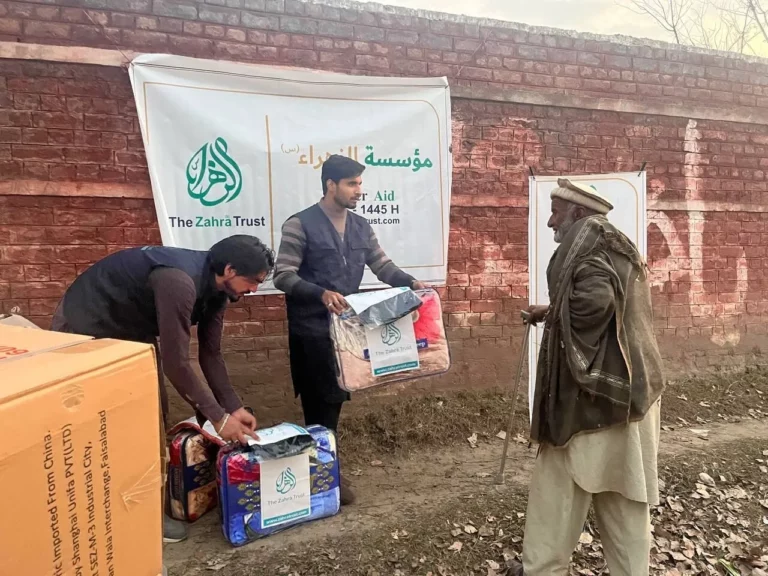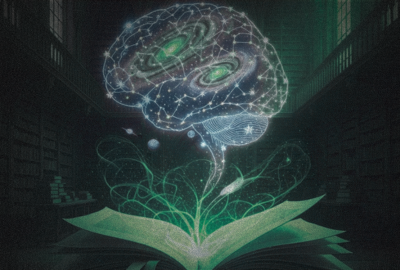5 Must-Read Islamic Books on Charity and Ethics
Reading isn’t just a habit, it’s an act of growth and can even be a commitment to faith.
In Islam, seeking knowledge is not only encouraged – it’s an obligation.
As Prophet Muhammad (saww) said,
“Seeking knowledge is incumbent upon every Muslim, male and female.” (Al-Majlisi Bihar al-Anwar, vol. 1. p. 177)
This National Read a Book Day, we reflect on a powerful legacy of learning within the Islamic tradition, especially in the areas of charity, ethics, and spiritual development.
Whether you’re just beginning your journey or looking to deepen your faith, these 5 must-read Islamic books will inspire your heart, expand your soul, and guide your actions with sincerity.
1. Nahjul Balagha (The Peak of Eloquence)
Nahjul Balagha, compiled by Sayyid al-Sharif al-Radi, is a timeless collection of sermons, letters, and sayings from the Commander of the Faithful (ss) teaches everything from divine justice to compassion for the poor.
In Nahjul Balagha, Imam Ali (as) calls us to live with dignity, humility, and unwavering faith.
It is a beautiful reminder of just how intellectually rich our Islamic tradition is – and a must-read for everyone, regardless of where you are on your journey of faith.
Learn more about the beautiful lessons taught by Imam Ali (as) here.
2. Misbah al-Shari’ah (Lantern of the Path) by Imam Ja’far Al-Sadiq (as)
A short but spiritually rich guide, Lantern of the Path helps you connect your inner self to acts of charity, sincerity, and worship.
Combining practical spiritual advice with deep ethical reflection, this book is ideal for anyone seeking to align actions with faith.
Imam Ja’far al-Sadiq (as), one of the greatest teachers in Islamic history, provides timeless guidance on how to walk a path that is both God-conscious and socially responsible.
3. The Scale of Wisdom (Mīzān al-Ḥikmah)
This vast hadith collection, compiled by Ayatollah Muhammad Muhammadi Rayshari, features the sayings of the Prophet (saww) and the Ahlulbayt (as) on topics like giving, honesty, compassion, and community.
It is an essential reference for ethical living, filled with authentic narrations that provide insight into how Muslims should conduct themselves with care, generosity, and sincerity.
Whether you’re looking to improve your character or better understand Islamic morals, this book is a must-read.
4. Revival of the Religious Sciences by Al-Ghazali
While Al-Ghazali is not identified as a Shia scholar, his work has had profound influence across the Muslim world.
This book dives deep into the ethical and spiritual dimensions of Islam, covering everything from charity and prayer to sincerity and humility.
It offers a comprehensive guide to living a God-conscious life; rooted in intention, reflection, and inner reform. A timeless read for anyone committed to personal transformation through faith.
5. The Holy Quran
This should go without saying – but the best and most truthful way to understand how to live our lives as Muslims is to return to the Noble Quran.
The Quran is the most beautiful collection of written work we can engage with to become closer to Allah (swt).
Every letter, every word, and every ayah has the power to transform our lives for the better. It teaches us the essence of charity, justice, and compassion in its purest form.
Honor the Islamic Legacy of Learning
This National Read a Book Day, let’s reflect on the wisdom of the Ahlulbayt (as) – and use our learning to uplift those most in need.
In today’s world, it remains more important than ever to uphold the Islamic legacy of education, compassion, and charity – and we pray that the future is bright for us all.
FAQ
Some of the most impactful Islamic books on charity and ethics include Nahjul Balagha, Lantern of the Path by Imam Ja’far al-Sadiq (as), The Scale of Wisdom, Revival of the Religious Sciences by Imam Al-Ghazali, and, of course, the Holy Quran. These works offer timeless guidance on generosity, moral character, and spiritual development.
Reading is highly valued in Islam because the very first revelation to Prophet Muhammad (saww) was “Iqra” — meaning “Read.” Islam places great emphasis on seeking knowledge, reflecting deeply, and applying learning in daily life to improve oneself and benefit society.
The Quran emphasises charity (sadaqa) as a core part of faith. Verses such as “Those who spend their wealth by night and by day, secretly and openly…” (Quran 2:274) highlight the spiritual and social rewards of giving. Charity purifies the soul, helps those in need, and strengthens the ummah.
The Ahlulbayt (as) were not only spiritual leaders but also educators who preserved and taught the deeper meanings of the Quran and Islam. Their wisdom, recorded in books like Nahjul Balagha and Lantern of the Path, continues to guide Muslims on ethics, justice, and piety.
You can support Islamic education by donating to reputable charities like The Zahra Trust, which works globally to provide access to education for orphans, widows, and vulnerable communities. Volunteering, sharing knowledge, and reading Islamic texts are also powerful ways to honor this legacy.











